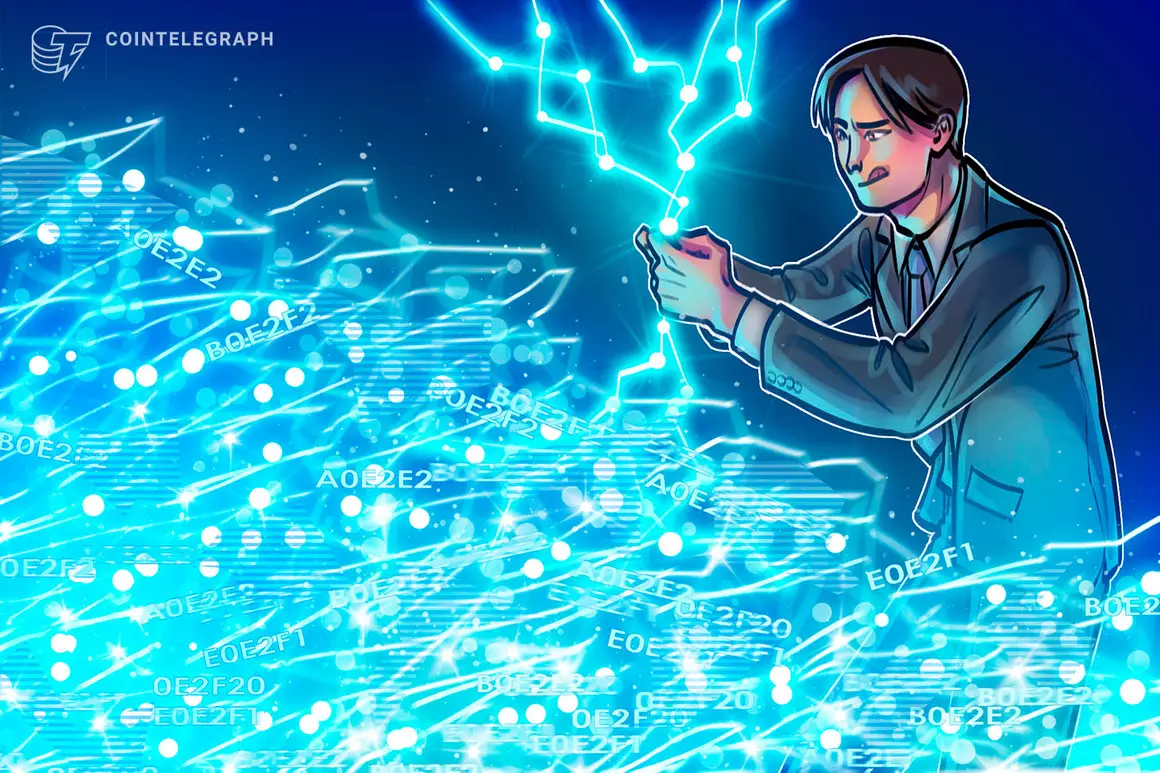Starknet, the Ethereum layer-2 scaling protocol, has recently deployed its Quantum Leap upgrade on testnet, claiming the ability to process “hundreds of transactions per second.” This represents a significant improvement, at least 50 times faster than its current throughput. The Version 12 upgrade achieves this by harmonizing the interaction between the sequencer’s code and the Cairo programming language.
According to a fact sheet provided by Starknet, the “time to inclusion” after the upgrade goes live on the mainnet will be under 15 seconds. This means that decentralized applications (DApps) will be able to confirm transactions on-chain within seconds. Co-founder Uri Kolodny cautiously mentioned in an interview that the upgrade has achieved “triple figures” during testing. If this high throughput can be sustained in real-world usage, it would mark a significant milestone for StarkWare’s decentralized scaling network.
Currently, Starknet processes a mere 1.79 transactions per second (TPS) according to L2Beat. With the upgrade, transaction speed could potentially increase by 56 times or more. This would surpass other Ethereum layer-2 solutions such as the OP mainnet (6 TPS), zkSync Era (8.63 TPS), Arbitrum One (9.69 TPS), and even Ethereum itself (12.29 TPS). However, it is important to note that when compared to Solana’s 4127 TPS or Visa’s 1700 TPS, Starknet’s TPS figures are still relatively low.
Kolodny acknowledged that scaling has been a major challenge for the blockchain ecosystem for several years. He believes that the Version 12 upgrade brings a “Quantum Leap” in terms of scaling, with more improvements expected throughout the summer. While the number of transactions per second is an important metric, Kolodny emphasized that capacity does not necessarily equate to usage. If there are not enough users on Starknet actually making 100 transactions per second, the protocol will not operate at its maximum potential.
The upgrade also addresses the issue of complicated transactions. Kolodny explained that the new version enables complicated transactions to make multiple calls, each performing separate logic from a separate contract. This improvement leads to an increase of at least 50 times in Cairo steps per second compared to the current capabilities.
Data Availability Problem to be Resolved in Version 13 Volition Upgrade
While the Quantum Leap upgrade introduces significant improvements, it does not solve the data availability problem faced by all ZK rollups. This problem arises from the limited space on Ethereum to write back all the required data for transactions on layer-2 solutions, resulting in higher costs.
To address this issue, Starknet plans to release the Version 13 Volition upgrade by the end of the quarter. This upgrade will provide users with granular control, allowing them to store crucial or high-value data on Ethereum while storing less important data elsewhere. This approach is expected to reduce fees by 85% and could pave the way for low-fee micropayments or a surge in affordable and fast blockchain gaming.
One of the key components of the Quantum Leap upgrade is Cairo-rs, a faster implementation of the Cairo virtual machine using Rust instead of Python. According to Federico Carrone, the founder of LambdaClass, the venture studio behind Cairo-rs, this release represents a historic moment for blockchains. It demonstrates that it is possible to scale blockchains safely using STARKs and opens up new possibilities for applications on top of a blockchain that were unimaginable just a few years ago.
In a separate announcement on June 29, StarkWare revealed that its validity proof ZK scaling technology had facilitated over $1 trillion in transactions. This milestone further highlights the potential of Starknet’s Quantum Leap upgrade and its impact on the scalability of the Ethereum ecosystem.

